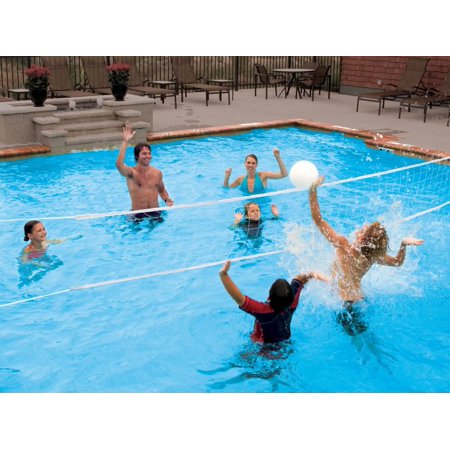Pool Safety and Premises Liability
The statistic is sad but true. Drowning is the leading cause of accidental death of children between the ages of one and four. Because children can slip under water in an instant, it’s essential that an adult supervise them in or near water always. Of course, a toddler or preschooler should never be in the water without an adult right there with him or her.
Make sure the adults know who is watching the children by the pool and that this person agrees not to engage in any distractions. This includes reading, playing games, sending text messages, or talking on the phone. However, it’s a good idea to have a phone nearby in case of an emergency. Designating an adult watcher is important even when swimming at a public pool with a lifeguard present. The lifeguard is there to watch everyone while the adult watcher only supervises a few children.
Additionally, it’s a good idea to enroll children in formal swimming lessons as early as possible. Check with your local Red Cross, YMCA, or public pool about lessons. Even infants can take swimming lessons as long as a parent holds him or her in the water.
Ensure That Pools and Spas Are Compliant with Drain Cover Laws
Whether you have your own backyard pool or spa, visit a friend with one, or swim at a public facility, make sure that the drain covers meet federal safety guidelines. Virginia Graeme Baker, the namesake of the Pool and Spa Safety Act, is just one of several children who have died across the country due to suction entrapment from a faulty pool drain cover. The law requires all pools and spas to have covers or drain gates to prevent a child or adult from drowning after succumbing to the suctioning power of an uncovered drain.
If you have children, instruct them to stay away from all pool drains. A broken or faulty drain could easily pull in long hair, jewelry, an arm or leg, or the fabric of a swimsuit. Even when the drains are properly covered, it’s best to stay away from them entirely.
Install Alarms, Fences, and Locks on Your Own Backyard Pool
When you own a pool, you must do everything possible to keep it safe. Under the attractive nuisance portion of Alabama premises liability law, this is true even when someone sustains an injury or dies in or near your pool when you didn’t invite that person to swim. The law recognizes that children have a natural attraction to swimming pools and may attempt to enter one without the knowledge of either the parents or the owner of the pool. Since children don’t have the same ability to recognize danger that adults do, swimming pool owners hold greater liability to make their pool inaccessible.
Placing a fence around your pool is essential for everyone’s safety. At Smith & McGhee, Attorneys at Law, we also recommend placing a gate with a lock to control entrance. If you choose a combination lock, be very conservative with who you allow to have the combination. Your child could still give it out to a friend and he or she could try to use your swimming pool when you’re not home. Placing an alarm on the door of the fence that sounds when an unauthorized person attempts entry is also a good idea.
Other Swimming Pool Owner Liability Laws in Alabama
Three counties in Alabama, including Baldwin, Jefferson, and Mobile, have laws regarding both signage and fencing for pool owners. Although they vary slightly between counties, the most common requirements include a sign stating pool hours and rules, a warning when no lifeguard is on duty, and a warning that children shouldn’t use the pool without adult supervision. Fence regulations stipulate that the fence must be at least four feet in height and surround the entire pool.
Have You or a Loved One Been Injured in a Swimming Pool Accident?
Sometimes you take every possible precaution and a swimming pool accident still occurs due to someone else’s negligence. You may have even lost a close family member to drowning. Whatever your situation, we encourage you to contact Smith & McGhee, Attorneys at Law, at our Dothan, Alabama law firm. You can request a free legal consultation by calling 334-673-1744.



